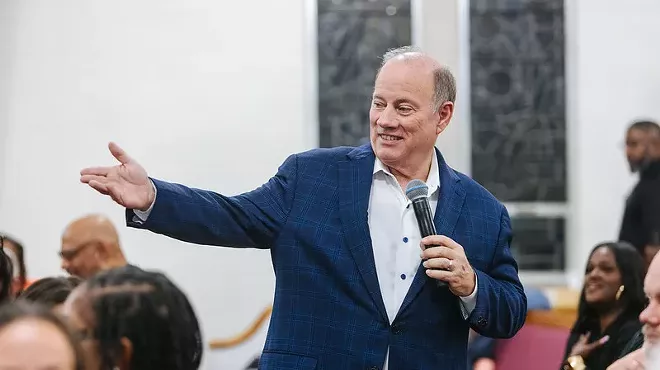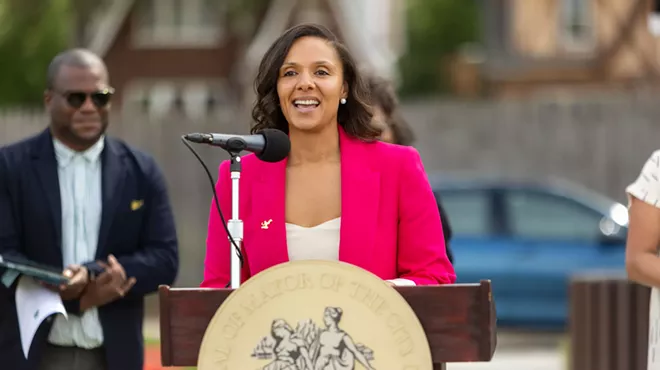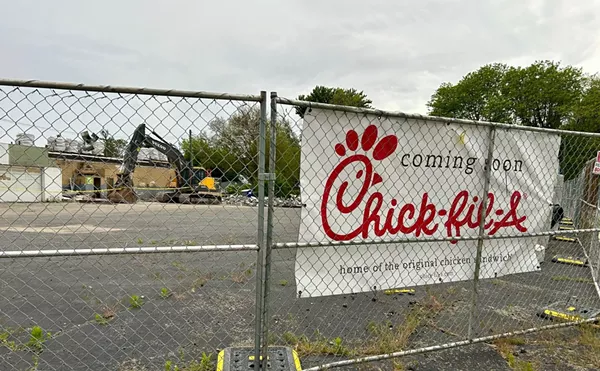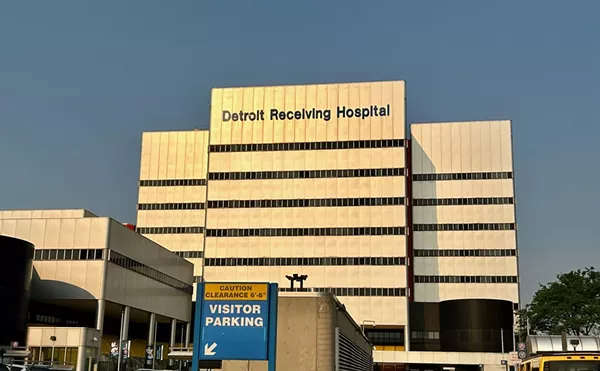Detroit Mayor Mike Duggan won’t seek fourth term
While Duggan is looking toward the possibility of a new chapter in Michigan politics, his decision marks the end of an era in Detroit

Audio By Carbonatix
[
{
"name": "GPT - Leaderboard - Inline - Content",
"component": "35519556",
"insertPoint": "5th",
"startingPoint": "3",
"requiredCountToDisplay": "3",
"maxInsertions": 100,
"adList": [
{
"adPreset": "LeaderboardInline"
}
]
}
]
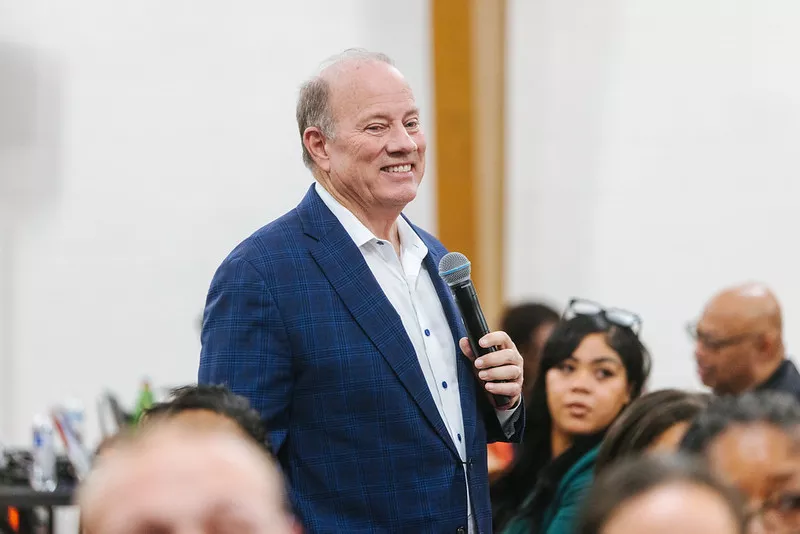
Detroit Mayor Mike Duggan announced Wednesday that he will not seek a fourth term in office but declined to address widespread speculation that he’s exploring a potential run for Michigan governor in 2026.
The announcement marks a major shift in Detroit politics, as Duggan’s decision opens the field for new leadership in the city and sets the potential stage for his ambitions on a statewide level.
“It’s time,” Duggan told employees in a packed auditorium at city hall. “I’m not going to be a candidate for mayor in 2025.”
Duggan’s departure from city hall concludes an era that began in January 2014 when he took office as Detroit's first white mayor since Roman Gribbs in the 1970s.
Throughout his tenure, Duggan, a former Detroit Medical Center CEO and Wayne County prosecutor, played a significant role in Detroit’s recovery from bankruptcy, focusing on core city services, downtown development, and large-scale initiatives like the return of the Detroit Pistons to the city. His administration is credited with improving government efficiency and streamlining essential services, which endeared him to many Detroiters and helped him win three terms with commanding margins.
However, Duggan’s time in office has not been without controversy. Critics argue his focus on downtown development has disproportionately benefited wealthy investors while leaving many struggling neighborhoods behind. His administration’s diversion of more than $1 billion in taxes originally earmarked for schools, libraries, and essential services to fund real estate projects has raised concerns among community advocates, who say the funds often benefited affluent developers more than Detroit’s residents.
Duggan’s demolition program, which aimed to eliminate blighted buildings, was the subject of a lengthy federal investigation, and his support for police surveillance technologies, including facial recognition, drew significant criticism from civil rights groups concerned about the disproportionate impact on Black residents.
Now that Duggan has confirmed he will not seek another term, Detroit’s 2025 mayoral race is expected to be highly competitive. City Council President Mary Sheffield, Councilman Fred Durhall III, former Councilwoman Saunteel Jenkins, and former businessman Joel Haashiim have already declared their candidacies, and Duggan’s announcement may prompt additional contenders to join the race.
“I’m going to watch these candidates emerge,” Duggan said. “We need someone who will bring us together.”
The election is likely to be a defining moment for Detroit, offering residents a chance to shape the city’s future without Duggan’s influence for the first time in more than a decade.
Duggan said he plans to announce his next plans “in the coming months.”
Gov. Gretchen Whitmer is term-limited and cannot seek reelection.
With his track record, Duggan brings considerable name recognition and campaign experience to the race for governor, if he runs.
While Duggan is looking toward the possibility of a new chapter in Michigan politics, his decision marks the end of an era in Detroit. Whether he ultimately runs for governor or steps away from public life, Duggan’s influence will likely continue to shape both Detroit and Michigan for years to come. His announcement signals a new beginning, both for the city he led for over a decade and for his own political journey.

